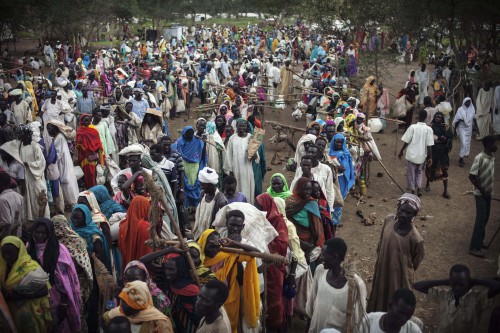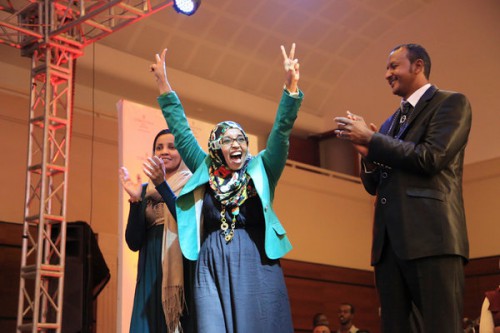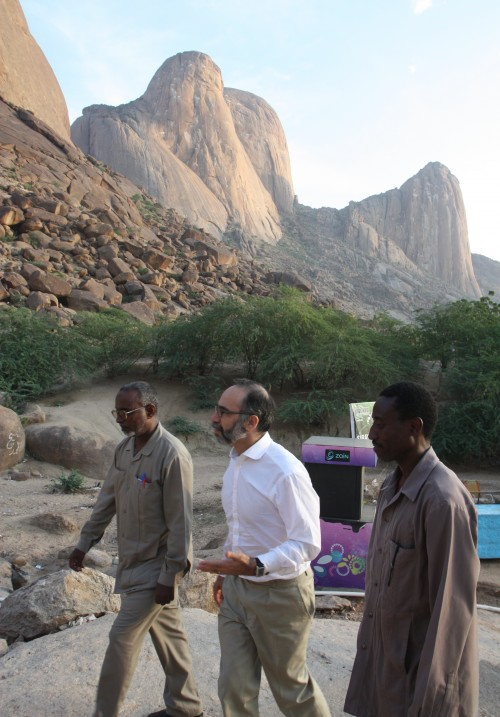5th January 2015
2014: the UK in Sudan
2014 was a difficult year for the people of Sudan. As in most countries the principal concerns were probably jobs, standard of living and education. Sudan has had to deal with high inflation and the deteriorating business climate, with the knock-on effect on employment. Conflict continued, leading to deaths, displacements, human rights violations and damage to livelihoods. There were some 450,000 new internally displaced people during 2014. Moreover Sudan had to cope with an influx of some 100,000 people fleeing conflict in South Sudan. A number of political leaders were arrested, civil society organisations closed down and newspapers seized.
Against this background the UK has continued to work bilaterally and with international and local partners to stand by the Sudanese people and help address some of the challenges Sudan faces. Our £40 million humanitarian and development programme provided life-saving support to Sudan’s most vulnerable people. This included food vouchers to displaced people in Darfur and supporting emergency health and nutrition programmes. Where possible we support more sustainable longer term solutions: We launched a new water programme to improve access to water and sanitation in the East of Sudan and will shortly start a new four-year water programme in Darfur. We provided food, water and shelter for South Sudanese refugees from which communities living with refugees also benefitted.

We have supported National Dialogue and the African Union-led negotiation process to bring peace to Darfur and the Two Areas. We do not believe that a military solution is possible in these conflicts and encourage all parties to commit to political negotiations. We are disappointed that so far these processes have not delivered concrete results. But they are the right way to go.
We have continued a programme of activities which we believe brings benefit to Sudan. We run a training programme for Sudanese journalists and senior editors. We support the entrepreneurship competition, Mashrouy, which has been a huge hit with TV audiences. The second series will air shortly. We celebrated locally the high-level “Preventing Sexual Violence in Conflict Initiative” and “Girl” summits hosted in London. Both are relevant to Sudan and there was participation from Sudan in both. In the end the Government did not sign up to the PSVI Protocol, although it expressed support for the aims and it did make some commitments at the Girl Summit (which was about ending female genital mutilation and forced and early marriage).

We have more than doubled the number of prestigious Chevening scholarships offered to outstanding graduates in Sudan. We thank our Sudanese business partners who continue to support this programme to educate future Sudanese leaders.
Demand for English language tuition continues to grow. The British Council delivered courses to some 3000 students in 2014 and has trained almost 4,500 teachers of English in 10 states, impacting over 200,000 children. The Council is working with the Ministry of Education to revise the English curriculum in Basic Education, and with the Ministry of Higher Education to reform the teaching of English as a university requirement.
We have spoken out on human rights and other issues. We have sometimes been criticised for doing so, or not doing enough. It’s not always easy to get the balance right. Our motive has always been to support Sudan to deal with the challenges it faces and to help improve the lives of ordinary Sudanese people.
For me personally the end of 2014 completes my second full year in Sudan. Engagement on the difficult and sometimes distressing issues in Sudan has been balanced by some memorable moments including magnificent trips to the North and East of the country about which I have blogged. The Sudanese reputation for hospitality and friendliness is well deserved. And I have the pleasure of working with some great British, Sudanese and other national colleagues in the embassy.
I congratulate the people of Sudan on the 59th anniversary of independence and wish them well for 2015. The UK will remain with you.
